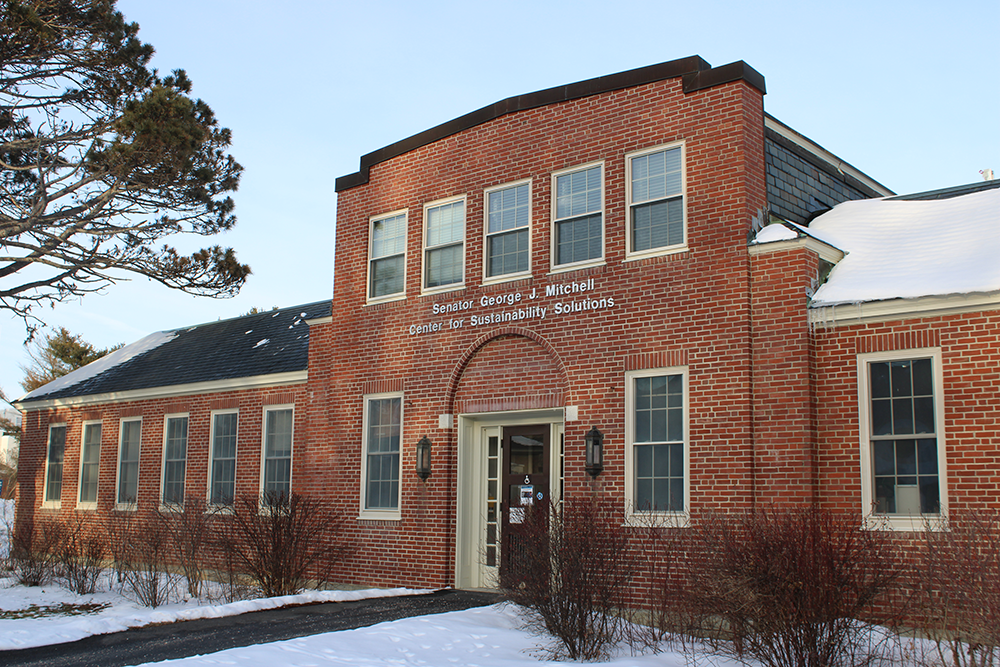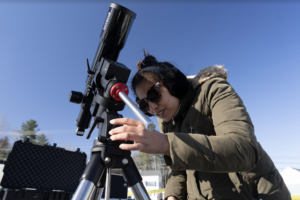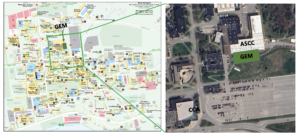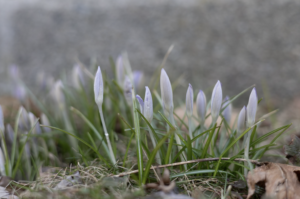A talk was held at the Mitchell Center for Sustainability Solutions on Oct. 16 regarding the “Productive Disagreement” in Lake Associations and how to be active in conservation for lakes and camps in Maine. The Mitchell Center welcomed Katie Swacha and Elizabeth Payne, an assistant professor and lecturer, respectively, in the English Department at UMaine.
The purpose of the talk was to bring awareness to everyday people about what they can do to preserve the environment for all camps, lakes and waterside recreation areas. A crucial aspect is learning to demonstrate cooperation, negotiation, agreement, and initiative, which Swacha and Payne covered at length. The phrase “conservation” is broad and can, therefore, be interpreted differently by everybody. This can make negotiations between stakeholders and property owners quite convoluted.
Since most environmental health practices at such waterfront locations are so casual, it can also be challenging to agree on the state’s best practices. A whopping 70% of the waterfront land in the state is privately owned, with only 20 miles of waterfront property being set aside for commercial use. This puts the onus on the citizens owning and utilizing this land to ensure they are responsible for its health.
Maine is ranked ninth for most extensive coastline of 228 miles compared to other states in the union, according to the Congressional Research Service, and fourth for most extensive coastline, including tidal inlets at 3,478 miles, according to the National Oceanic and Atmospheric Administration.
This being the case, the U.S. Department of Commerce’s Bureau of Economic Analysis found that $2.8 billion of Maine’s economic output came from outdoor recreation, making up 3.6% of the state’s total economy as of November 2022. Maine’s nature-based entertainment economy does not just come from lakes, the ocean, ponds, rivers, streams, trails and undeveloped land.
As for the environmental regulations currently put in place to protect waterside rec centers, all lakes must be pollution-free, including general garbage, specifically nondegradable food and beverage containers, mercury-added products, invasive species of plants and no waste dumping.
Aside from polluting, there is not much regulation on any other aspect of environmental preservation. While water quality is an essential aspect of conservation, there are other simpler things that everyday people can do that not only improve the environment but also add to the pleasantness of our state’s waterways.
One easy way to get involved in cleaning up the waterways is avoiding unnecessary noise pollution. For instance, avoiding playing loud music, running the engine of a vehicle, boat, ATV or bike when it is not being actively used, or even to avoid screaming and yelling excessively. Such actions will prevent wildlife disturbance, which can have a powerful impact on the local environment.
If litter is present at the lake, pond, etc., that you are visiting, pick it up, even if it does not belong to you. Do not venture further off trails or onto property than you are asked to go. This not only shows respect to the property and the owners but also lowers the risk of habitat destruction for wildlife.
Also, always make sure to review local and federal laws regarding wildlife protection before going on an outing, no matter where or at what time of year.
Katie Swacha, an Assistant Professor of Professional and Technical Writing in the English Department at UMaine, feels passionate about conservation and land protection. She also directs the English Career Internship program and believes that when it comes to protecting the environment, in this case, camps in the state, students have a lot to contribute to the cause when it comes to taking action.
Elizabeth Payne is a lecturer in Professional and Technical Communication at UMaine. She works with campus sustainability and specializes in engineering communication and business and technical writing. She uses her position to help students develop multidisciplinary research-writing projects to impact environmental sustainability at UMaine positively.
For more information about the talk, visit https://umaine.edu/mitchellcenter/seminars/fall-2023-sustainability-talks/.













